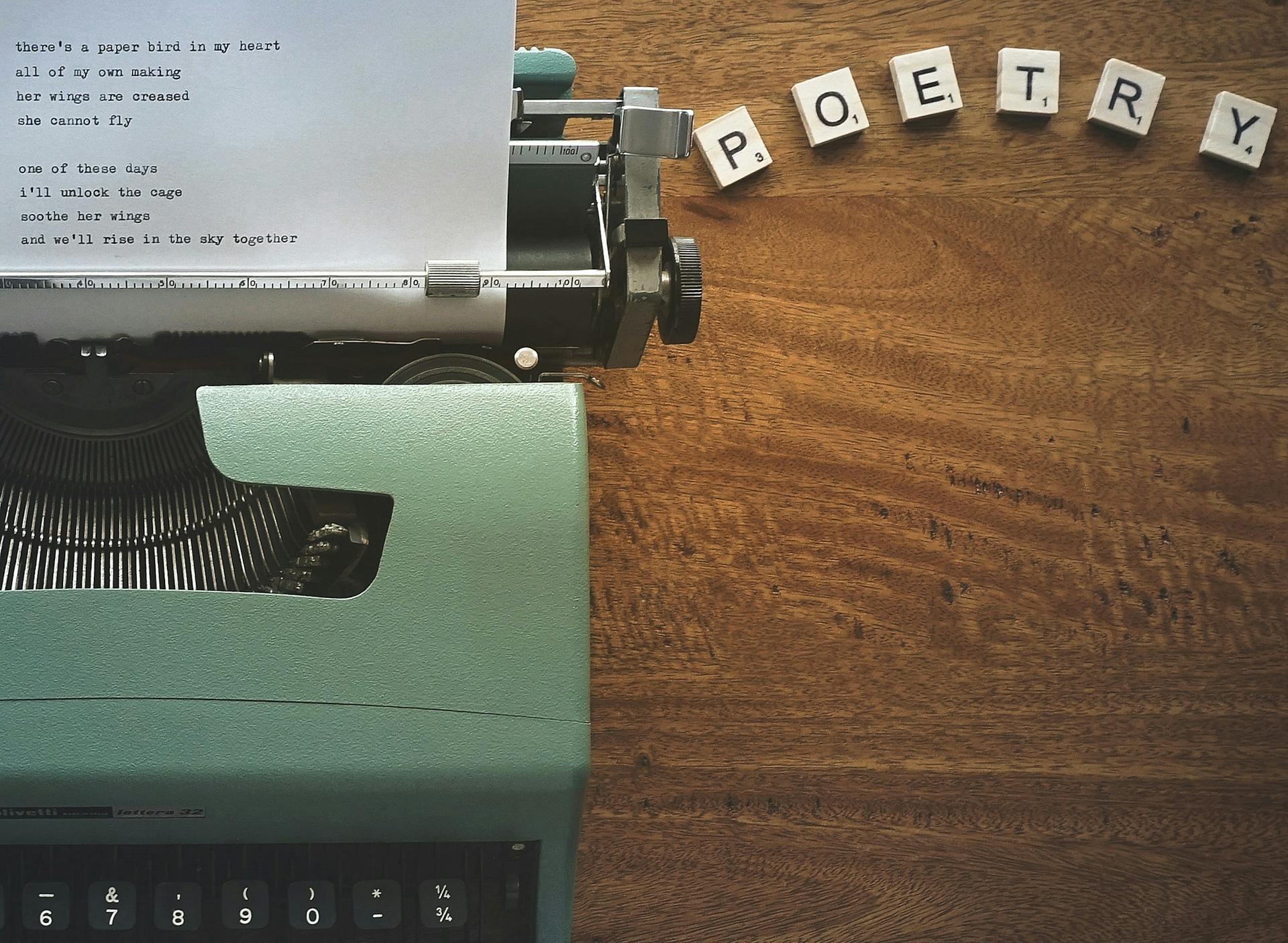We’ve all been there: sitting alone, trying to write something, but words seem to refuse to flow. It’s a familiar struggle for poets and writers alike. But don’t worry, there’s a way to overcome this creative dilemma. Thanks to the help of a poem generator, you can still write poetry when your ideas run dry.
In this article, we’ll discuss what poem generators are and how they work. We’ll also give you some tips on how to use them effectively to improve your poetic skills. If you’re ready to level up your poetry using AI, read on!
What is an AI Poem Generator, and How Does It Work?
A poem generator is a tool that uses advanced algorithms to analyze vast databases of poetry and literature. These algorithms identify patterns, themes, and linguistic nuances to generate original poetic compositions. By drawing inspiration from existing works, these tools create poems that embody human emotion and imagination.
Simply put, AI poem generators are amazing tools that can help you unleash your creativity and express your emotions.
That said, here are a few types of poems you can generate using such tools:
- Free Verse – Unconstrained by rhyme or meter, free verse allows you to express your thoughts freely.
- Haiku – A traditional Japanese form with three lines (5-7-5 syllables) that often capture moments in nature.
- Cinquain – A five-line poem with specific syllable patterns (2-4-6-8-2).
- Rhyming Couplets – Pairs of lines with end rhymes.
- Sonnet – A 14-line poem with specific rhyme schemes (such as Shakespearean or Petrarchan).
- Villanelle – A structured poem with 19 lines and a specific pattern of repeated lines.
- Limerick – An entertaining five-line poem with a unique rhyme pattern (AABBA).
- Acrostic – A poem where the initial letter of each line forms a word or message.
- Love Poem – Express your feelings of love and affection.
- Narrative Poem: Tells a story through verse.
- Concrete Poem – The shape of the poem visually represents its subject.
- Tanka – A five-line Japanese form (5-7-5-7-7 syllables).
Using Poem Generators to Enhance Your Poetry
Incorporating AI writing tools like ChatGPT poem generator into your creative process helps you break free from creative blocks. Best of all, such tools can level up the quality of your poetry. You can even leverage them to explore new styles and techniques.
Here’s how you can use poem generators to improve your own poetry:
- Spark Inspiration. When you’re out of inspiration, turn to AI poem generators to kickstart your creativity. Input a few keywords or prompts related to the theme you want to explore, and let the generator generate a poem for you. Sometimes, seeing words and phrases arranged in unexpected ways can ignite new ideas and perspectives for your own poetry.
- Experiment with Styles. Poem generators can create poems in various styles and forms, from sonnets to free verse. Use this opportunity to experiment with different styles that you might not have tried before. All that is to say, you can expand your poetic toolkit and discover new ways to express yourself using AI poem tools.
- Learn from the Output. Study the poems generated by AI carefully. Pay attention to the imagery, language, and structure used. Analyze what elements resonate with you and why. By dissecting the output, you can gain insights into effective poetic techniques and incorporate them into your own writing.
- Refine and Personalize. While AI-generated poems provide a starting point, don’t be afraid to make them your own. Edit and revise the generated poems to align with your unique voice and style. Add personal anecdotes, tweak the language, or change the imagery to better reflect your thoughts and emotions. By personalizing the poems, you can infuse them with authenticity and depth.
- Use as Writing Prompts. Treat AI-generated poems as writing prompts for your own creative exploration. Take a line or phrase from the generated poem and use it to write your own poem. Let the themes, emotions, or imagery from the original poem inspire your narrative. This exercise can help you uncover new layers of meaning in your poetry.
Famous Poets To Emulate Using AI Poem Generators
To improve our poetry, we often seek inspiration from the masters. With the help of AI tools, we can now explore their styles in new ways.
Emily Dickinson
When using poem generators, channel the concise and introspective style of Emily Dickinson. Input prompts that evoke themes of nature, mortality, or introspection, and allow the generator to write poems that mimic the essence of Dickinson’s poetic style. Use the generated poems as a foundation to explore similar themes in your own writing voice. That way, you can mirror Dickinson’s ability to express deep emotions with few words.
Langston Hughes
Explore the rhythmic and reminiscent poetry of Langston Hughes through poem generators. With the right prompts, AI poetry tools can create poems infused with jazz-inspired rhythms and imagery—Langston Hughes’ popular poetic style. Study Hughes’ use of dialect and social commentary, and use the generated poems as inspiration to address themes of identity, social justice, and the human experience in your own work.
Sylvia Plath
With the use of a poem generator, you can even emulate the raw and emotive poetry of Sylvia Plath. Simply input prompts that tackle themes of mental illness, existential despair, and personal struggle. The tool will then generate poems that echo Plath’s haunting imagery and confessional style. Use the generated poems to explore your own experiences and emotions. Tweak the words and refine the generated poem, then infuse it with depth and authenticity inspired by Plath’s introspective approach.
Frequently Asked Questions
Can AI poem generators truly capture the essence of human emotion?
While AI generators can produce compelling poetry, they may lack the depth of emotional insight and personal experience inherent in human-authored works. However, they can still serve as valuable creative tools and sources of inspiration.
Are there copyright concerns associated with using AI-generated poetry?
Since AI-generated poetry is based on algorithms and existing data, there may be potential copyright implications if the output closely resembles copyrighted works. It’s essential to review the terms of service and usage rights of the specific generator used.
How can I ensure my AI-generated poems remain authentic to my voice?
While AI generators provide a starting point, it’s crucial to incorporate your personal style, perspective, and emotions into the final composition. Use the generated poem merely as a springboard for exploration. Then, add your unique insights and experiences to create a truly authentic work of art.
Write Better Poetry With Poem Generators
We’ve learned a lot about how AI can help us write better poems. By leveraging poem generators, you can expand your poetic styles and refine your craft.
But remember, these tools are meant to inspire and assist, but the true magic happens when you put your own thoughts and feelings into your poetry. A poem generator is just a tool to help us along the way. So let’s keep using it to make our poems even better, and keep sharing our works with the world.
Ready to create your own poem? Apply what you’ve learned and use our poem generator to create your own today!






